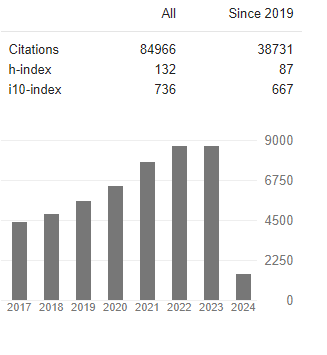Indoor and Outdoor House Inspection Coupled with Community Mobilization Impact on Decreased Aedes Aegypti Entomological Indices during Chikngunya Dengue Outbreak Containment in Affected Localities of Kassala and Red Sea States, 2018-2019
Abstract
Hajhamed RM, Abdalmajed MA, Toto TH, Osman SOS, Abdalgadir OM, Seed Ahmed B, Ismail BA, Jumma YF, Aljack AG, Almishawi AM
Aedes aegypti is an important vector for dengue virus infection. Apart from dengue virus, Aedes aegypti is also the vector for transmission of other viruses presenting serious public health threats: chikungunya, and yellow fever. The present paper aimed to assess the impact of indoor and outdoor house inspection coupled with community mobilization on decreased Aedes aegypti entomological indices during Chikungunya-Dengue Outbreak containment in affected Localities of Kassala and Red Sea States, 2018-2019. The survey was conducted in Kassala and Red Sea State during outbreak of chikungunya and dengue. The survey was performed in the affected localities by dividing the localities into seven-day blocks from Saturday to Friday. All dwellings of each block were thoroughly checked by health promoters on the specific day. The sufficient numbers of promoters were available to cover all the houses in the affected areas. The study revealed that the reduction in house index from baseline in Kassala state was reduced by 90.4% in week 7. While the House index was reduced from baseline in Red Sea Sate by 87.1% in week 14. For container index it was reduced by 89.6% in Kassala State in week 7 compared to 89.0% in Red Sea State in week 14. The study concluded that indoor and outdoor inspection coupled with community mobilization has impact on reduced of Aedes aegypti indices mainly house index and container index.




